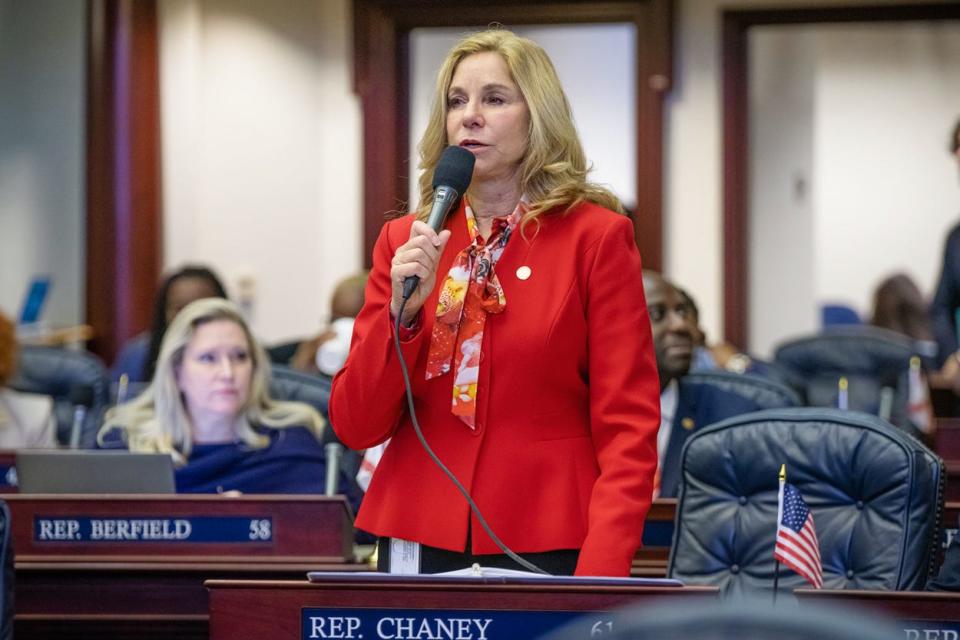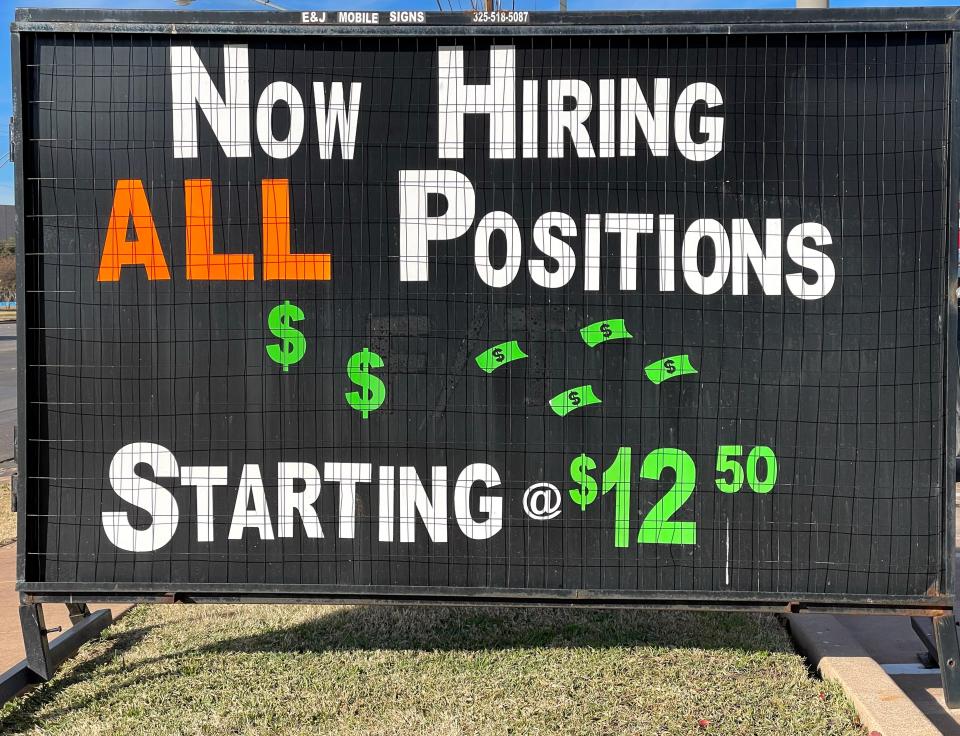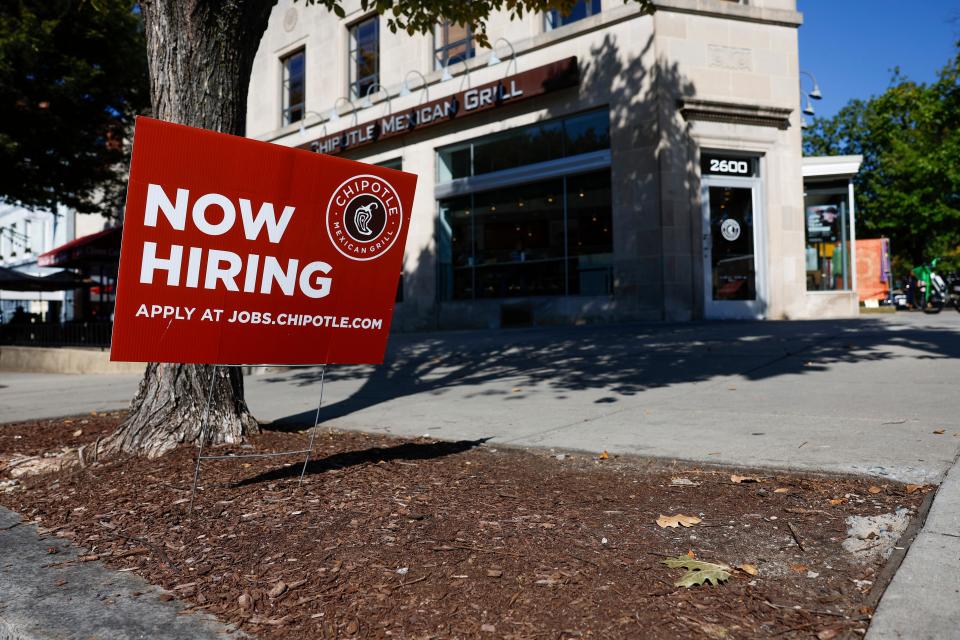Florida teens say they want to work. But will Florida Legislature enable bad bosses?
Joseph Pickles loves the summer.
Right after an afternoon shower, when the air cools just a bit and the grass is green, he can be found on the farm, cutting up sod into perfect squares and loading them onto a pallet.
“It’s like a Jenga tower, perfect, smooth sides,” Pickles said.
The Havana 16-year-old works on his family’s sod farm every day after school until the sun goes down. He would work more if he could, he said.
“There shouldn’t be a limit on what a 16, 17-year-old should be allowed to work,” he told the USA TODAY Florida-Network.
Pickles supports a new legislative effort that would treat 16- and 17-year-old children like adults in the workplace. The USA TODAY Network-Florida spoke to working teens who say they do want to work, but some are nervous about taking away safeguards that protect minors from being exploited by employers.
“Employment and Curfew of Minors” (HB 49), sponsored by Rep. Linda Chaney, would remove decades of restrictions. The measure already passed the House. If it passes the Senate and is signed by Gov. Ron DeSantis, 16- and 17-year-olds in Florida would be able to work over 40 hours a week, more than eight hours a day and would not be required to have breaks.
“They want to work,” said Chaney, a Republican who represents St. Pete Beach, on the House floor on Feb. 1. “This bill gets government out of their way to choose a path that’s best for them.”
Pickles said he did have one condition, however. Students should be able to maintain at least a 3.0 grade point average and meet the state’s requirements for school attendance.
“They’re building the future generation of America,” he said.

High school junior Ivy Kesti has more reservations about the bill. Kesti, who works at a grocery store bakery in Tallahassee, said an employer could easily schedule a teen for more hours, which would force them to decide between school and extracurriculars or work.
Life could get a lot busier, she warned, if this bill passes. Teens would need to make sure to speak to employers about their availability to protect their work life balance, even at their young age.
“Because if you don’t, it has the potential to spiral out of control,” Kesti said.
Not as many teens work as in prior decades
Fewer teenagers have jobs now than they did decades ago. In January 2004, 44.5% of 16-to 19-year-olds had a job compared to 36.5% in January of this year, according to the U.S. Bureau of Labor Statistics. Of those teens, the two occupations with the most employed teens were food service and sales.
Moreover, in 2021 white teens were more likely to work compared to Black, Asian and Hispanic teens, according to the Pew Research Center.
Critics of this year's legislation have called it a “child labor” bill. While Chaney has said her measure is a chance to give teens “choice and opportunity,” Democrats have rebuked the bill and argued that it’s a way for employers to take advantage of young workers.
Before the bill passed the House, 10 amendments offered by Democrats that they say would have strengthened protections for teen workers were voted down, including an amendment by Rep. Robin Bartleman, D-Weston, which would have required employers to give 16- and 17-year-olds a break every five hours.
Carlos Giddings, owner of Level Up Lawn Care in St. Petersburg, said he hires teens only during the summer. Lawn care requires a schedule that's too busy for both work and school.
“There are some students who have the ability to maintain both but they are few and far in between," he said.

Giddings, whose own daughter worked in high school, said he would prefer teens stay in school and that the state provide more career and technical education opportunities. Many lawn care jobs for municipalities require a high school diploma or a GED, he said.
For example, Tallahassee, Gainesville and Miami all require a high school diploma or a GED for a lawn care job. In Miami, a part-time landscaping position for $15 an hour requires a high school diploma and six months experience, according to a job description.
Pickles said a high school degree shouldn't be necessary to get a well-paying job. "America was built by people without high school diplomas," he said.
Work breaks 'nice and needed,' teen says
Gideon Sheets, a 17-year-old high school student in Tallahassee, works at a fast food restaurant during the week and on the weekends. His employer requires him to take a break every four hours, which he describes as “nice and needed.”
But restaurants are chronically understaffed, he said. According to the National Restaurant Association, 45% of operators need more employees to meet customer demand this year.
“The people that are willing to show up will definitely be used to the fullest extent if given the choice,” Sheets said.

Chaney's bill was referred to the Senate rules committee last week. The Senate's companion, "Employment of Minors" (SB 1596), by Sen. Danny Burgess, R-Zephyrhills, was referred to a committee meeting in late January but has since stalled.
Burgess' bill would limit the hours 16- and 17-year-old children are allowed to work to 30 a week.
Some US companies are increasing the oversight of their domestic supply chain and cracking down on child labor, according to The New York Times.
McDonald's, Costco, Starbucks and other major brands have announced they are revising and strengthening audits of their suppliers as thousands of migrant children have been found working in dangerous conditions in every state.
The U.S. Department of Labor found a 14% increase in child labor violations in 2023. The same year, 5,800 children were illegally employed, an 88% increase since 2019.
Sheets said he understands why a teen would want to work as much as possible, especially if they contribute to a single-income household and have to chip in to pay for bills.
“I am pro-people having choices, but I could see how bosses could kind of abuse that,” he added.
Pickles plans to head to Texas A&M University for a degree in agriculture. His family farm has been around for four generations, and he plans to learn everything he can about sod to keep the tradition going.
He said it's important that teens learn how to manage work and school at the same time. It's their responsibility.
"If they don't, when they get older, America is gonna be a mess," Pickles said.
Ana Goñi-Lessan, state watchdog reporter for the USA TODAY Network – Florida, can be reached at agonilessan@gannett.com. Ellie Houghton, a student journalist, contributed to this story.
This article originally appeared on Tallahassee Democrat: Teens want to work but some worry about bill enabling bad bosses

